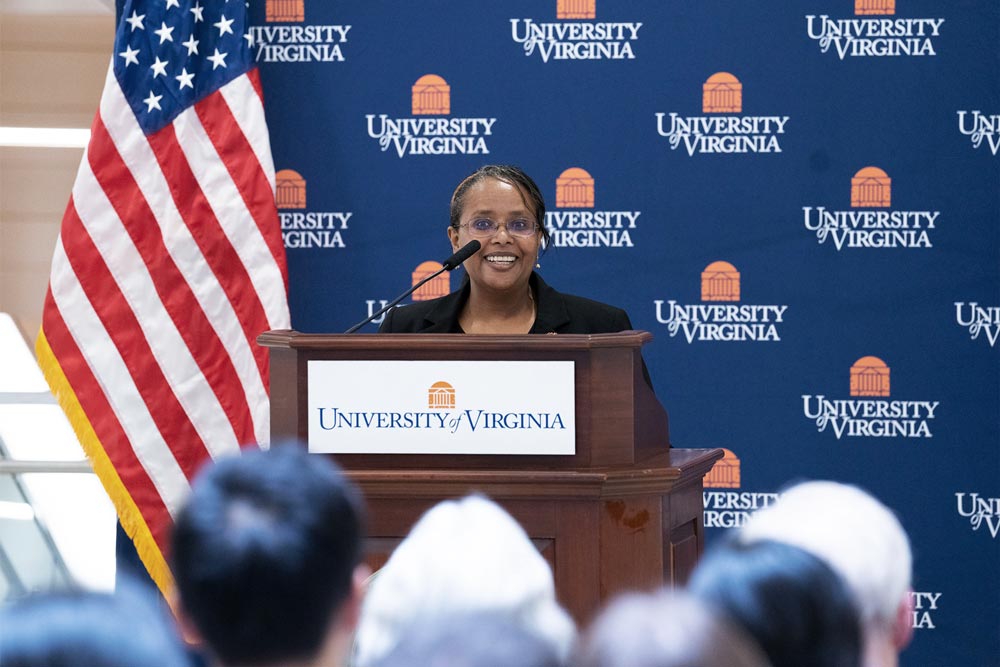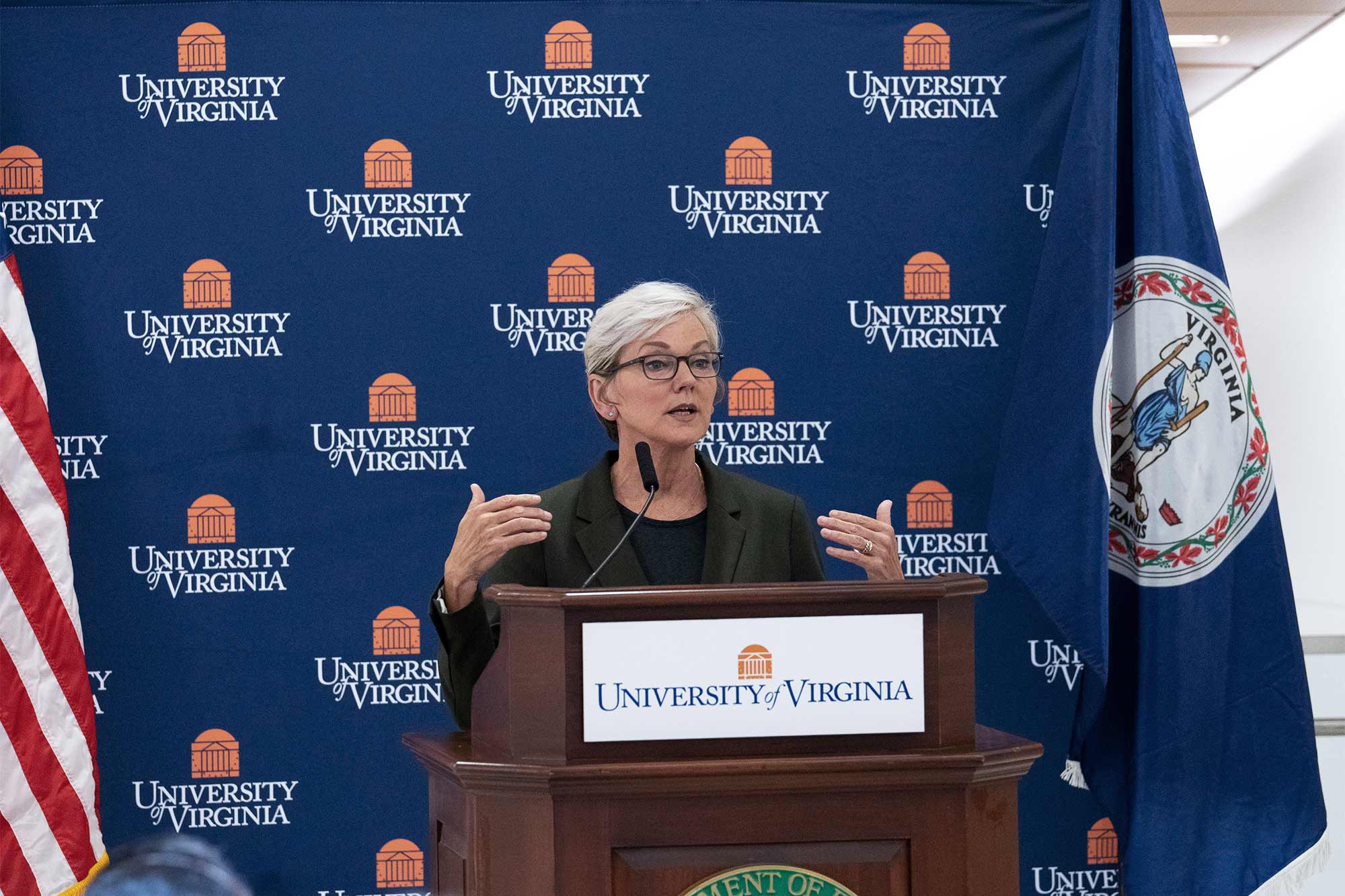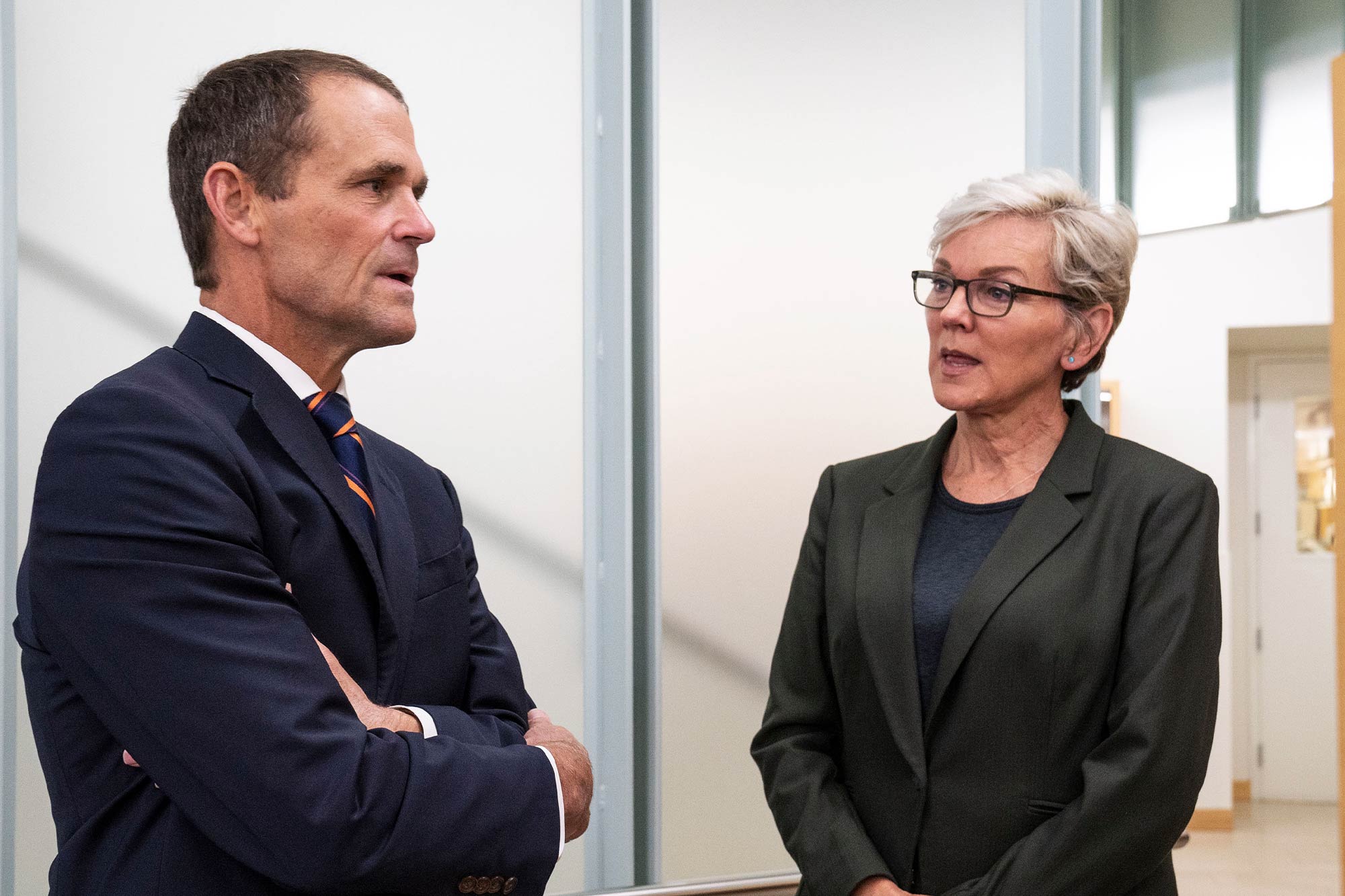Following announcements of a series of White House initiatives intended to advance domestic production of clean and affordable alternatives to fossil fuels, U.S. Secretary of Energy Jennifer Granholm visited the University of Virginia Thursday to award a team of researchers a $3.7 million grant to support research into clean energy technologies.
The award is part of a package of over $540 million funding research led by universities and national laboratories that will create a strong scientific foundation for meeting President Biden’s goal of creating a net-zero emissions economy by the year 2050.
Granholm and Dr. Asmeret Asefaw Berhe, director of the Department of Energy’s Office of Science, met with UVA President Jim Ryan and representatives from the College and Graduate School of Arts & Sciences; associate chemistry professor Sen Zhang; chemistry professor T. Brent Gunnoe; associate professor of chemistry Charles Machan; and assistant professor Huiyuan Zhu to tour several of the University’s labs involved in working toward a deeper understanding of the production of green hydrogen.
Hydrogen is used as a carrier to store and transfer energy, and it is also an important industrial chemical, but that hydrogen is currently derived from fossil fuel that contributes over 900 million tons of carbon dioxide emissions each year.

However, research conducted by Zhang and his partners that focuses on understanding the electrolysis process at the atomic and molecular level could move science closer to a process that would allow for the development of green hydrogen from carbon-free energy sources like solar power and water. By leveraging the expertise of scientists at UVA and other research institutions around the country focused on different aspects of the challenge, the team expects to develop a process that is more sustainable and less costly.
Following the tour of the University labs, Granholm announced the award from the lobby of UVA’s newly renovated chemistry building and spoke about several key pieces of climate legislation introduced by the Biden administration, including the Bipartisan Infrastructure Law and Inflation Reduction Act and the CHIPS and Science Act.
“This is a global quest, to reduce the cost of clean hydrogen, and if we do, we will be able to arrive at net-zero carbon emissions by 2050 [with] 100% clean energy, which is the administration’s goal, by 2035,” Granholm said.
“The Department of Energy has historically been a research and development organization, funding basic research, funding early development and early-stage demonstration,” Granholm added. “But with these three pieces of legislation, we have moved significantly into deployment and large-scale demonstration phase of the equation and all of it in partnership with universities and the private sector, and we need that full continuum of solutions.”

The award will complement investments the University is making through its Grand Challenges Research Initiatives, which include a $60 million investment in supporting cross-disciplinary research initiatives aimed at bringing new perspectives to climate-driven challenges, developing innovative clean-energy technologies and sustainability strategies, and empowering policymakers, communities and businesses with the knowledge and resources necessary to apply those solutions to the challenges they face.
“Investing in clean energy is one of our top priorities at UVA, and figuring out how to produce green hydrogen in a sustainable way would be a game changer in the field of clean energy,” Ryan said. “There are many who would say that the government can’t solve all problems on its own, but it can absolutely be a critical partner with universities and with industry to tackle some of the largest problems that we’re facing in the country, and the Department of Energy has been one of the most important partners to the University in this respect.”
Following the award presentation, Zhang said he and his colleagues “are very excited about this multi-institution and interdisciplinary project to develop cost-effective water electrolyzers.”
“This project allows the integration of expertise from nanomaterials, molecular catalysis, electrocatalysis, operando spectroscopy, membrane, computation and artificial intelligence, and device engineering to tackle the big challenges in green hydrogen production,” he said. “It aligns with the Department of Energy’s hydrogen ‘earthshot’ mission of reducing the H2 production cost using water electrolyzers to $1 per one kilogram in one decade. The success of this project will contribute to clean hydrogen production using electricity produced from carbon-free sources, potentially transforming the U.S. energy portfolio within the next 10 years.”
Media Contact
Associate Vice President for Communications and Chief Communications Officer University Communications
btc6r@virginia.edu 703-477-8222
Article Information
July 2, 2025




